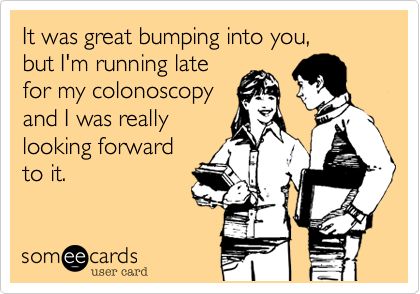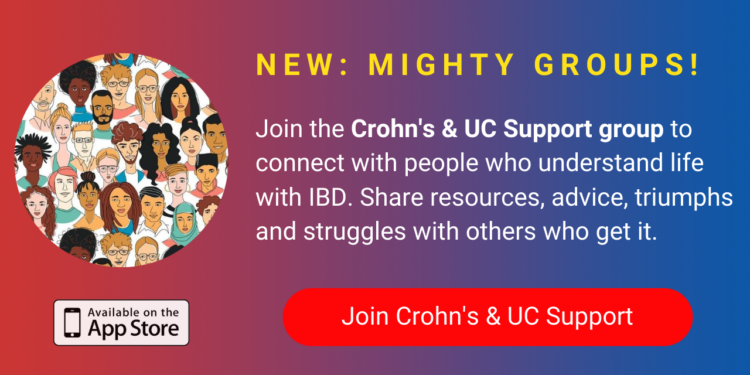It has been almost 12 years since I was diagnosed with ulcerative colitis and I have learned a lot since then. As a sixth grader, I had no idea what my diagnosis would mean, but it has most certainly changed my life. Before getting into what I have learned, here’s a brief synopsis of my story.
I was originally told by a doctor who I met only once that I did not have enough fiber in my diet. Anyone want to take a guess how that went when I began to increase my fiber intake? You guessed it. The symptoms got 10 times worse. After that disaster, another doctor had me get an endoscopy, a barium x-ray and a colonoscopy. From that experience, I discovered I never want to get a barium x-ray again. When that was all said and done, I was diagnosed with ulcerative colitis. Since then, I have found out that my case is a little more along the lines of the Crohn’s disease, but it does not change the medication I need to take. From the regular colonoscopies to the bad days, I have learned what it means for me to have ulcerative colitis (UC). While no one has the same experience, this is what I have learned over the years about my UC. I still have plenty to learn, but these are some of the things I have learned that have changed my life.
1. You will continue finding out that people you have known for years have a similar diagnosis.
This never ceases to amaze me. Over the years, I have discovered that so many people I know have UC, Crohn’s or some form of inflammatory bowel disease (IBD). Not surprisingly, it makes you feel way more comfortable with that person. It’s like a bonding experience. If I have a question to ask them about their experiences, I know they are always open to talk about it. Bathroom talk is widely accepted in the IBD community, and I very much appreciate that. If we’re being honest, you really can’t be diagnosed with any form of IBD and not appreciate poop jokes.
2. You will never stop learning about your condition.
And no one wants to hear about the gross details…what a bummer. Pun intended.
3. You will have really terrible days, and you won’t be able to do anything about it.
I have figured out that laying on my stomach sometimes relieves pain, but on many of my worst days, I can’t even stand up straight. Other than that, I can only crawl around the house while staying close to the bathroom. No matter what anyone says, staying at home on bad days is actually not even close to being great. I feel completely helpless and basically all I can think about is how much pain I am in and how ridiculously unproductive I am being.
4. You will figure out who understands invisible diseases.
From family members to teachers, some people just don’t get it. I’ve been so blessed with amazing people in my life that are understanding, but it’s surprising who doesn’t believe you. “You don’t look sick, though…” Thank you…?
5. Colonoscopies are actually awesome.
 Some may disagree, but stepping on the scale after a clean-out is pretty cool. I also really dig the deep sleep and the cool socks you get to wear during the procedure. During the first colonoscopy I had as a pediatric patient, I was given a stuffed animal. I told my mom it was like we bought the stuffed animal and I got a free colonoscopy with it. She informed me that would probably not be a big selling point. Weird.
Some may disagree, but stepping on the scale after a clean-out is pretty cool. I also really dig the deep sleep and the cool socks you get to wear during the procedure. During the first colonoscopy I had as a pediatric patient, I was given a stuffed animal. I told my mom it was like we bought the stuffed animal and I got a free colonoscopy with it. She informed me that would probably not be a big selling point. Weird.
6. As a future special educator, I have gained a better understanding of invisible diseases.
Although I have always been understanding of those with invisible diseases, I used to struggle with understanding the pain behind an invisible disease, like depression and anxiety. I consider my UC a blessing in disguise because one day, I will be able to be understanding of my students when no one else is. My goal is to not only be an effective educator, but a responsive patient and considerate teacher.
7. Medications may not get reduced and that’s OK.
When I tell people my disease has yet to be cured they immediately make assumptions. Usually the only correct assumptions they make are relating to the massive amounts of medication I take. No matter how many medications I take, I know they are made to help me work towards keeping my UC under control.
8. You will figure out you are not alone.
This is incredibly reassuring. Since the very beginning of my diagnosis, I have been especially aware of those around me who are constantly supporting me. Additionally, the online presence of the Crohn’s & Colitis Foundation of America and other supporters have greatly increased over the past few years. Believe it or not, it helps to hear the stories of those in very similar situations as your own.
9. “Take these broken wings and learn to fly.”
When I was diagnosed with ulcerative colitis in sixth grade, I had to take my imperfect intestines and learn how to do life with them in mind. Since then, I have had to approach everything with my guts in mind. While that sounds like a pain, it’s taught me the importance of my own health. Whether I am traveling to another country or going to hang out at a friend’s house, I have to think of myself. Do I need to bring my medications along, or will I be home in time to take them? Do I need a doctor’s note, or just my prescriptions? What should I eat? What shouldn’t I eat? Where is the nearest bathroom? These have all become a part of my internal dialogue and I rarely have to think twice about some of them. However, it has changed how I have taken my broken wings and learned to fly.
Even though I have been dealing with my UC for years, I still have plenty to learn about how to “take these broken wings and learn to fly.” Keep fighting and learning about your colon.
We want to hear your story. Become a Mighty contributor here.


